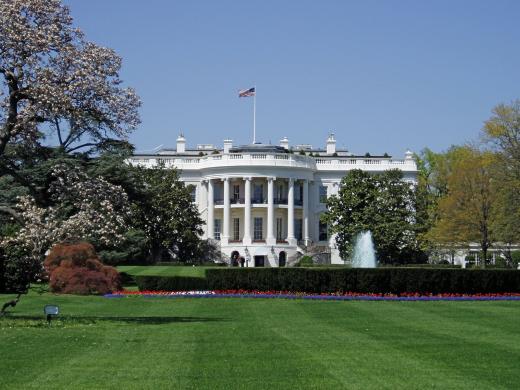A Colossal Miscalculation at the Worst Time
Given the very public regional and international opposition, the botched independence referendum will enter the history books as a colossal miscalculation by the Kurdish leadership. To be fair, Masoud Barzani is not the only one to be blamed for this strategic blunder. His Kurdish allies from the PUK, KIU and smaller parties, his local and international advisors, the opposition, an army of co-opted & profiteering journalists/writers, and the party and shadow media all share responsibility — to varying degrees — for this failed gamble. The writing was on the wall but key Kurdish players stubbornly refused to see it. This disaster couldn’t occur at a worse time for Iraqi Kurds. The division and fragmentation between and within the main parties runs deep. Due to the economic crisis, the KRI is almost bankrupt. When Iraqi troops, supported by Iran and facilitated by the withdrawal of the Talabani faction of the PUK, retook Kirkuk and other areas, the KRG lost 50 percent of the disputed territories and half its oil revenues. Yet it didn’t need to come to this tragic end.
Pre-Referendum Political & Economic Gains
The KRG is known for its inherent and notorious lack of transparency and accountability, particularly in the oil sector. It lacks basic financial planning and has a large democratic deficit. The KRG has not had a budget since 2014. It has not submitted end of year financial reports for 2013, 2014, 2015, 2016 and 2017 to the Parliament. As such it is impossible to get an accurate idea regarding the revenues and expenditures of the KRG since 2014. This being said, the KRG should nevertheless be credited with its relatively successful post-2003 diplomatic and investment policies. Today over 37 countries and international organisations have a diplomatic mission of one form or another in the region. Despite some setbacks, oil and gas multinationals have made major investments in unexploited fields. These efforts, along with the fight against ISIS, further bolstered the KRG’s role in Iraq. Paradoxically, the diplomatic achievements were made possible partly by the Iraqi constitution of 2005 (despite its ambiguity over jurisdiction in foreign relations) and partly by the energetic diplomatic drive of the KRG.
Turkey’s Reaction: “We Have the Tap”
Turkey publicly and staunchly opposed the referendum — with perhaps his misreading of Erdogan’s position one of the major miscalculations of Masoud Barzani. Barzani may have thought that their economic “interdependence” would in the end push Erdogan to accept the new reality. True, Turkey did not close the oil pipeline and border crossing, even though Erdogan made it very clear on the day of the referendum that Turkey was willing and able to do so. But an independent Kurdistan on Turkey’s southern border would have been hard to stomach, and this message was conveyed to Barzani more than once.
Iran’s Reaction: A Chill but Firm “No”
In the run-up to the referendum, senior Iranian officials – including the Revolutionary Guards’ Special Forces commander Qasem Soleimani — delivered tough warnings to Kurdish leaders, including Barzani, not to hold the referendum. In contrast to Turkey, Iran did close the three border crossings only to reopen them in October, December and January respectively. Iran also supported Iraqi troops — with the help of the Talabani faction of the PUK — to retake Kirkuk and other disputed territories. While there was no pause in Turkey’s economic relations with the KRG while political relations deteriorated, the opposite happened in relations with Iran. The closing of the border crossings did hurt Iranian provinces bordering the KRG, but despite its tough stance on the referendum, Iran has been very careful to sustain political relations with the KRG.
The KDP’s U-Turn towards Iran
Realising its weakened position and deteriorated ties with Turkey, the KDP has started a quiet rapprochement with Iran. This is a remarkable development given its strong economic and political relations with Turkey since 2009. Over the past four months, key KDP personalities visited Iran and reportedly told Iranians they would like to improve economic relations and even explore the possibility of exporting Kurdish oil through Iran rather than Turkey. Furthermore, it has been reported that the KDP has conveyed to the Iranians that it could be a substitute for the PUK as Iran’s strategic Kurdish partner, given the paralysis and internal fragmentation of the PUK.
Post-Referendum Para-Diplomacy: Back to Baghdad, But…
Faced with an existential crisis of its own making, the KRG had no choice but to try to repair relations with Baghdad. Far from leaving Iraq, the KRG’s short term hopes and para-diplomacy are focused on persuading the federal government to pay the salaries of public employees and reopen regional airports for international flights. Last month the KRG and the Iraqi government reached an agreement on both issues — Baghdad sent partial salary payments to public employees and reopened the airports. It is not, however, clear for how long this agreement will last, also in light of the upcoming Iraqi elections and the uncertainty over who will form the new government and what its policy towards the KRG will be. More complicated is the extent to which the new Iraqi government will be able to reach settlements for the complex outstanding issues of revenue allowances and power-sharing, and the final status of disputed territories. The U.S. does not seem interested, at least for now, in pressing Baghdad to start serious negotiations and meet any of the Kurdish demands on the aforementioned complex issues. The same holds true for Iran- the only regional player with real leverage over Iraq, and despite the KDP’s attempts to improve relations with Tehran. Turkey has not closed the oil pipeline but is adamantly against Kurdish independence. As such, it seems the KRG has lost its hard-won relative de facto independence. It is weaker, more fragmented than ever and dependent on Iraq, Iran and Turkey for its survival. It has no option but to put its own house in order, implement long-overdue real political and economic reforms, combat corruption at the top and hope for better historic circumstances to achieve independence if and when the regional balance of power changes. Will the KRG take these existential steps? Time will tell.
Click here to read on LSE.
Photo: "Peshmerga | Kurdish Army" (CC BY 2.0) by Kurdishstruggle


